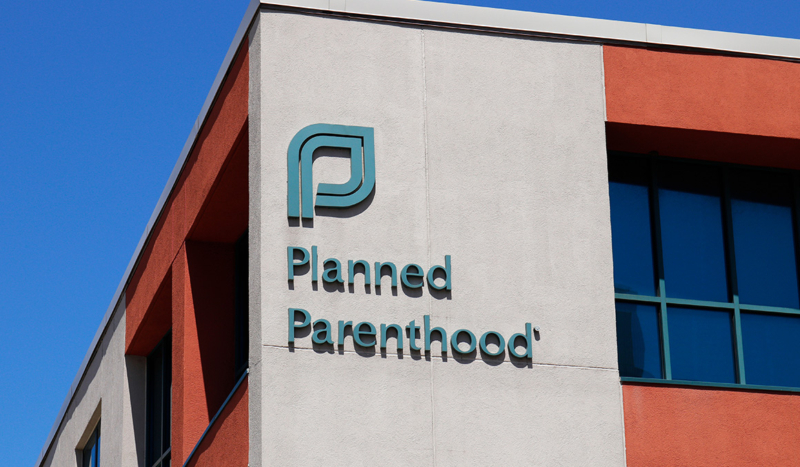
jetcityimage / stock.adobe.com
Planned Parenthood may be looking at a “dire future” as it wrestles with political opposition, shifting mission focuses, and profound financial difficulties, according to a July 18 article in the Wall Street Journal.
In her piece for the Wall Street Journal, Pamela Paul, who formerly was an opinion columnist for the New York Times, observed that the nation’s largest abortion provider has pivoted to spending much of its time and energy on pro-“transgender”-related efforts. Today, in a document for patients, the abortion giant bills itself as “the second largest provider of hormone therapy” in the US.
Planned Parenthood does not make numbers on “gender transitions” publicly available, according to Paul. However, she reports that the Manhattan Institute, a conservative think tank, released an analysis of insurance data showing that more than 40,000 patients went to Planned Parenthood in 2023 for “gender medicine.” Approximately 40% of these patients were 18 to 22 years old.
From 2017 to 2023, Planned Parenthood treated at least 12,000 12- to 17-year-olds for gender dysphoria, according to the Manhattan Institute’s analysis.
Focus on “gender medicine” has become so central to Planned Parenthood’s identity that it “no longer positions itself as the leading healthcare provider for women and has largely stopped referring to women on its website and in policy statements,” Paul observed.
Planned Parenthood now usually uses the term “pregnant people” to be “inclusive,” but this approach has brought concern among some, including former Planned Parenthood President Pamela Maraldo.
“I don’t understand the national office’s thinking in not allowing anyone to talk about women’s health anymore,” Maraldo said, according to the Wall Street Journal. “These really, really left-wing ideological postures are to me just as off-putting as they are on the right when they’re counter to basic Americans’ common sense.”
The company’s pro-“transgender” pivot has also garnered criticism due to its protocol regarding prescribing cross-sex hormones.
According to the Wall Street Journal, patients do not need a professional diagnosis to obtain cross-sex hormones at Planned Parenthood — all that Planned Parenthood’s patient guidelines require for a same-day prescription is a 30-minute consultation with a staff member, which can be done in person or remotely.
Even some who support the use of cross-sex hormones have been critical of what they see as Planned Parenthood’s laissez-faire approach, such as Laura Edwards-Leeper, who helped found the US’ first pediatric “gender” clinic.
Edwards-Leeper, who was instrumental in developing standards of care for the transgender advocacy group World Professional Association for Transgender Health (WPATH), shared that she has been taken aback by her young patients’ descriptions of how easy it has been to obtain hormone treatments from Planned Parenthood.
“It really seems that their protocol is substandard and lacks the rigor necessary for a life-altering intervention,” Edwards-Leeper said, according to the Wall Street Journal.
However, the “transgender” focus is not the only aspect of the company under fire: Paul also reported that virtually all aspects of Planned Parenthood’s business model “are now under threat, and from all three branches of the federal government,” Paul wrote. The Trump administration is withholding Title X grants from several Planned Parenthood affiliates because of alleged violations related to DEI (Diversity, Equity and Inclusion), Paul noted. Further, the Supreme Court ruled against patients’ ability to sue states for denying Medicaid funding to Planned Parenthood clinics. Finally, as of this month, Congress has voted to cut off all federal Medicaid funding for Planned Parenthood for a year in the “Big Beautiful Bill.”
>> Pro-life leader says ‘desperation is showing’ as Planned Parenthood sues over funding cuts <<
“As it faces this potentially dire future, Planned Parenthood is also contending with an identity crisis that has been brewing for decades,” Paul continued. “The trouble stems from its dual and often dueling roles as both a national advocacy organization and a local healthcare provider, one inherently political and the other necessarily nonpartisan.”
This is not the first story from a major newspaper shedding light on Planned Parenthood’s mounting difficulties. As CatholicVote previously reported, the New York Times published an in-depth examination in February of some of the abortion giant’s myriad troubles, including staffing issues and abysmal conditions at a number of its facilities. Simultaneously, the majority of the nearly $500 million in donations that Planned Parenthood Federation of America received the year after the overturning of Roe v. Wade went, due to bylaws, toward the company’s political and legal efforts, according to the Times report.
>> Missouri AG sues Planned Parenthood for misleading women about abortion pill risks <<
Paul’s July 22 report also reflected on how the tensions between Planned Parenthood’s identity as both a national lobbying organization and a “local healthcare provider” exacerbate underlying financial issues, since so much money goes to advocacy — leaving many of the clinics “poorly maintained, understaffed and short on funding.”
Further, the federal government’s cuts to Planned Parenthood via the “Big Beautiful Bill” for the next year could lead to the closure of 200 of its facilities, the company said on social media, as CatholicVote previously reported.
Planned Parenthood’s financial difficulties pre-existed these cuts. The Wall Street Journal reported that a former executive said the abortion company hired the consulting firm McKinsey, which determined that Planned Parenthood’s facility operations were “unsustainable.”
